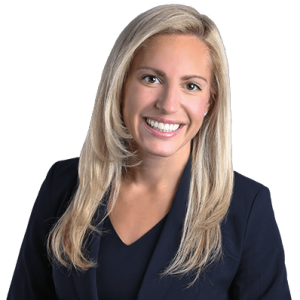Advances in artificial intelligence (AI) and machine learning are getting closer to providing insurance companies with a new underwriting tool to combat fraud: the ability to review meeting minutes and other public documents from homeowners and condominium associations, whose communities are home to nearly half of Florida’s 22.3 million residents.
Several Florida associations have been accused of recent wrongdoing, including one where four former board members were arrested, accused of engaging in a multi-million dollar embezzlement of monthly dues from residents. Former Florida Deputy Insurance Commissioner Lisa Miller sat down with an insurance lawyer and an insurance services company executive who uses AI, to find out how often this fraud happens, how it increases property insurance rates, and exactly how the new technology to fight it will work.
Show Notes
The South Florida Sun Sentinel did a recent exposé of a West Miami development called The Hammocks, a 6,500-unit community of houses, townhouses, and condominiums. Four former association board members were arrested for allegedly engaging in an intricate scheme to embezzle millions of dollars in monthly dues from residents. Authorities say $2.4 million in checks were written to five companies that did little or no work for the homeowners association (HOA) – two of them owned by the husband of the former board president.

Andy McGuire, Chief Strategy Officer and Co-Founder, PEAK6 InsurTech
Andy McGuire, Chief Strategy Officer and Co-Founder of PEAK6 InsurTech, said such fraudulent practices contribute to inflationary pricing and higher insurance rates. He said advances in technology, especially artificial intelligence (AI) and the machine learning process, are providing better insights into risk. His company’s subsidiary, Focus Technologies, is doing this today to serve its customers better.
“With enough observations, you can run a model, for example, on the language used in the meeting minutes to potentially pick up on schemes,” said McGuire. “Now that we have this example, for this particular issue, we can build an AI and teach it with these talk paths or words and knowing that it resulted in fraud, you have your first learning. You can get enough positive observations that you now have a model that an underwriter can load the minutes into and get a prediction. Combine that with financial data and a propensity to commit fraud of each individual member of the board, and you have a fully automated decision tree. I don’t think we’re totally there yet, but we’re really close. This is the future,” said McGuire, whose 25 years in the industry include risk management and reinsurance.

Tiffany Rothenberg, Partner, Kelley Kronenberg
Tiffany Rothenberg is a Partner at the Kelley Kronenberg law firm’s West Palm Beach office in the heart of Florida’s condominium country. She represents commercial property insurance companies in complex coverage disputes and is an expert in the HOA and condominium association insurance claims arena.
“I can’t tell you how frequently we end up seeing this kind of a scenario,” Rothenberg told host Lisa Miller. “I just had a case here in Palm Beach County, where the association submitted a $4.5 million dollar Hurricane Irma claim for roof damage. When we started to review their condo records, we discovered that the association actually had five roof replacement proposals that were all under $1 million. And then during depositions, it came out they actually signed a contract with one of those roofing contractors for around $900,000. So you add to that, that their policy had a $500,000 hurricane deductible and basically the association was trying to reap a $4 million windfall from the insurance company.”
Rothenberg said she also sees many cases where the homeowners or condo association doesn’t have money in their building reserve account because they’ve been waiving their reserve funding requirement over multiple years. “And then after a hurricane comes along, the association will make a claim for new roofs, new siding, windows and doors. And what we see when we review their condo records is that frequently in this type of scenario, the problems began long before the hurricane. The association knew the expense was necessary but no one wanted to pass a special assessment and shell out the money that frankly was necessary to pay for very necessary and foreseeable repairs,” said Rothenberg, who heads her firm’s commercial first-party property litigation practice.
 The Florida Legislature in its May 2022 special session passed SB-4D, which instituted tougher building inspection and reserve requirements. But those reforms are still being implemented. This is another area where McGuire says AI will soon be able to help, by reducing an insurance company’s time in tracking down records and reducing costly claim investigations.
The Florida Legislature in its May 2022 special session passed SB-4D, which instituted tougher building inspection and reserve requirements. But those reforms are still being implemented. This is another area where McGuire says AI will soon be able to help, by reducing an insurance company’s time in tracking down records and reducing costly claim investigations.
“The key in the AI world is basically the number of observations you have and the conclusion,” explained McGuire. “So once you have those things, you can train a model to actually recognize them…Tiffany’s seen and I’m sure she’s got numerous examples of similar or like kind of cases. So you can easily train a model at some point, to kind of look at the details of a case and basically either point you where the propensity is to look, what the propensity is of the result, (and) what we may or may not find. We’re in a whole new world in machine learning, just because processing power has gotten so prolific and so cheap,” he said. That means cases of misrepresentation and fraud could be identified more quickly and easily, reducing costly claims.
“There needs to be some way for insurance carriers to pull together with a firm like Tiffany’s to build a model that can protect consumers of both (unit owners) insurance and HOAs (buildings),” added McGuire. This is highly inflationary. You’re seeing it really impact people that are on fixed incomes, especially in some of these condo associations,” he said.
“Oh my gosh, if we had some of the technology that Andy is talking about in the claims investigation process and also worked into the underwriting part of the insurance model, we would have a lot more tools at our disposal and be able to resolve some of these issues much quicker,” replied Rothenberg. “If the underwriting process and the insurance application have the right questions, and then during the investigation process we find that those (answers) aren’t true, then it makes my job of voiding coverage under the policy much easier.”
Host Miller and guests also discussed the angst among condominium owners and other members of homeowners association, not only over increasing insurance costs but questionable board management practices. Rothenberg said it’s important for associations to follow the requirements of SB-4D, including reserve studies to plan for future capital expenditures.
Both guests said this new technology could impact not only property insurance, but errors and omissions (E&O) insurance for association board members and professional management. McGuire said AI can not only help in the underwriting of the building’s physical characteristics, but those of the individuals running the association’s board.
“The technology exists today to really underwrite the individual…When it comes to the E&O side, you really need to be underwriting the individual people. And that totally exists today. There is so much data out there around and it’s all publicly available,” McGuire said, comparing it to reviews for medical malpractice insurance. “If we know that the profile of this person is, for lack of a specific term, I would say shady, I would advise carriers to probably not even quote on a piece of business like that, or rate it significantly higher if you can’t put your thumb on exactly what it is because there is incremental risk there,” he said.
Rothenberg said her legal cases often involve parallel cases of E&O insurance claims from homeowners against their association boards for questionable decision-making.
“A condominium association is only as good as the board that runs it,” commented host Miller. “Insurance companies need to understand that the underwriting risk of a property can be just as much about the condo association board and management as it is the physical characteristics of the property.”
Links and Resources Mentioned in this Episode
Condo Wars: After HOA corruption arrests, Florida’s community management industry works to weaken reform bills (South Florida Sun Sentinel, October 18, 2023)
SB-4D Florida Senate bill on Building Safety
Condo Underwriting & Presuit Settlements (Florida Insurance Roundup podcast, August 30, 2021)
Kelley Kronenberg, Attorneys At Law
Demolish Contractor Fraud (Florida Insurance Consumer Advocate’s Office)
Subscribe to the LMA Newsletter (free)
** The Listener Call-In Line for your recorded questions and comments to air in future episodes is 850-388-8002 or you may send email to [email protected] ** ![]()
The Florida Insurance Roundup from Lisa Miller & Associates, brings you the latest developments in Property & Casualty, Healthcare, Workers’ Compensation, and Surplus Lines insurance from around the Sunshine State. Based in the state capital of Tallahassee, Lisa Miller & Associates provides its clients with focused, intelligent, and cost conscious solutions to their business development, government consulting, and public relations needs. On the web at www.LisaMillerAssociates.com or call 850-222-1041. Your questions, comments, and suggestions are welcome! Date of Recording 11/2/2023. Email via [email protected] Composer: www.TeleDirections.com © Copyright 2017-2023 Lisa Miller & Associates, All Rights Reserved

